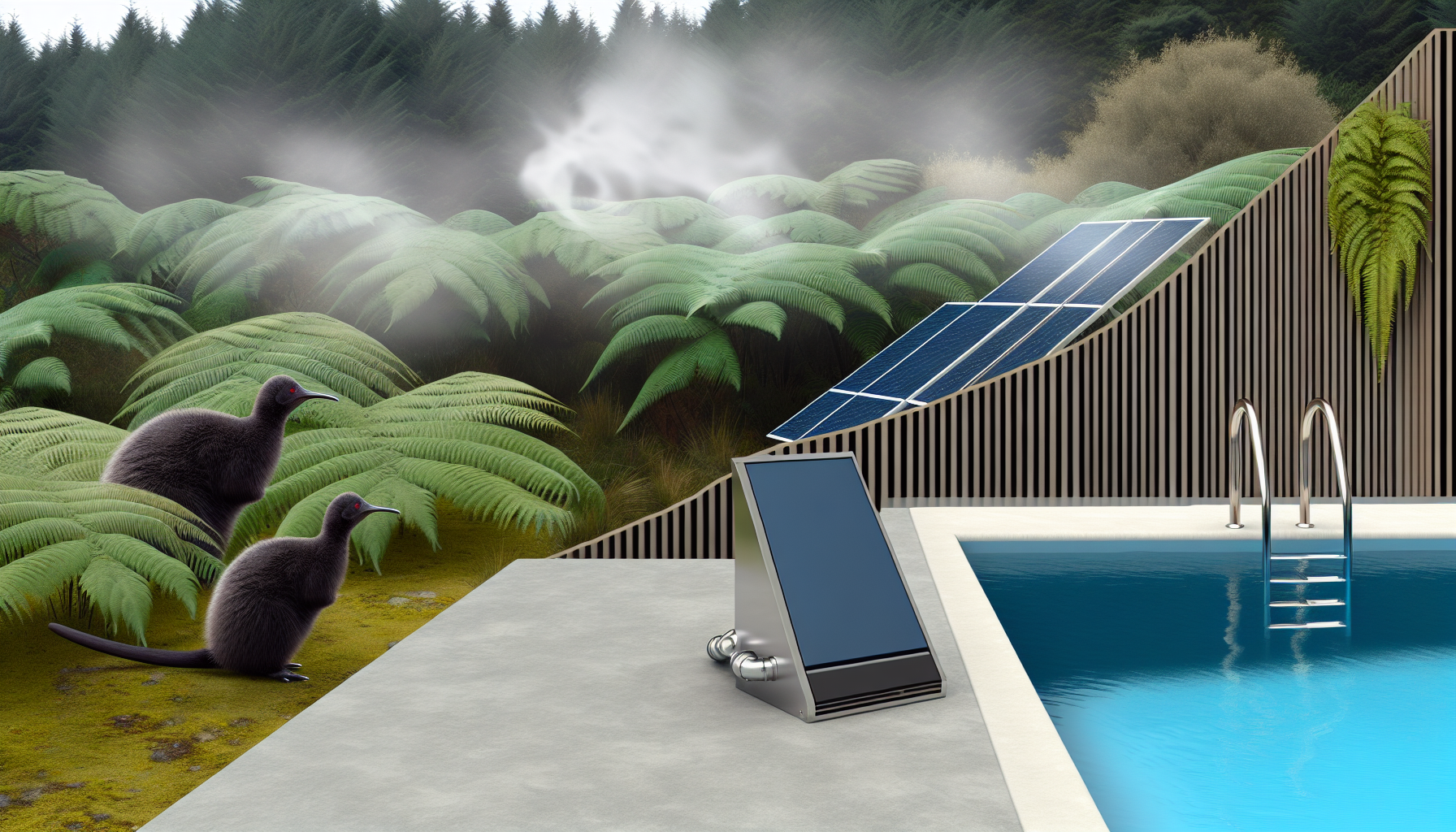Heating a pool in New Zealand isn’t just about keeping the water warm—it’s about doing it without burning through cash on power. Pools are great, but they can turn into energy guzzlers if you’re not careful. So, what’s the most energy-efficient way to keep your pool at the right temperature without getting a nasty shock when the power bill arrives? Let’s get into it.
Use a Pool Cover—Seriously, It’s a Game-Changer
Before we even get into heating systems, let’s talk about heat loss. Most of a pool’s heat disappears into the air, especially overnight. A pool cover is the easiest and cheapest way to hold onto that heat. Think of it like putting a lid on a pot of soup—you wouldn’t leave it uncovered if you wanted it to stay warm longer, right?
A solar pool cover (also called a bubble cover) traps heat from the sun and stops evaporation. According to Splash Direct NZ, a good-quality pool cover can reduce heat loss by up to 75%. That means less heating is needed, and that alone can save you heaps on energy.
Heat Pumps—The Most Efficient Heating System
If you’re serious about keeping your pool warm without racking up giant power bills, a heat pump is the way to go. Heat pumps don’t generate heat like a traditional heater—instead, they pull heat from the air and transfer it into your pool, which is way more efficient.
Here’s why they work so well:
- They use way less energy compared to electric resistance or gas heaters.
- They’re designed to work efficiently, even in cooler temperatures (which matters in NZ’s unpredictable weather).
- Over time, they cost less to run than gas or electric systems.
Hot Water Heat Pumps has some great options designed for NZ conditions, and they explain why heat pumps are one of the most cost-effective ways to heat a pool long-term.
Solar Heating—Harness Free Energy
If you’ve got space for solar panels, this is another solid option. Solar pool heaters use the sun’s energy to warm your water, which means you’re not paying for electricity to heat your pool. Sure, the upfront cost is higher, but once it’s installed, the sun does most of the work for free.
One thing to keep in mind—solar works best if your pool gets plenty of direct sunlight during the day. The Solar Pool Heating Company offers systems built for NZ conditions, and they can help figure out if it’s right for you.
Keep Your Pool Insulated
If you’ve got an above-ground pool, insulation matters. Without it, heat escapes faster than you can replace it. Even in-ground pools can benefit from insulation around the sides and bottom. If you’re building a new pool, consider adding insulation to reduce heat loss from the start—it’s kind of like insulating your home to keep the temperature stable.
Run Your Heating System at the Right Time
Timing makes a difference. Running your heat pump or solar heater during the warmest part of the day is more efficient than cranking it up at night when the air is cooler. Also, if you’ve got access to cheaper overnight power rates, see if it makes sense to run your system then.
The Best Combo for NZ Homes
If you’re looking for the most efficient setup, pairing a heat pump with a pool cover is the way to go. The heat pump keeps the pool warm, and the cover stops the heat from escaping. If you’re in a sunnier part of NZ, adding a solar heating system can cut your electricity use even further.
Final Thoughts
There’s no single “best” way to heat a pool—it depends on your setup, budget, and how often you swim. But if you want a no-fuss, efficient system, get a heat pump and a pool cover. If you’ve got the space and budget, add solar heating for an even bigger energy boost. Either way, keeping your pool warm doesn’t have to cost a fortune if you do it right.


Leave a Reply